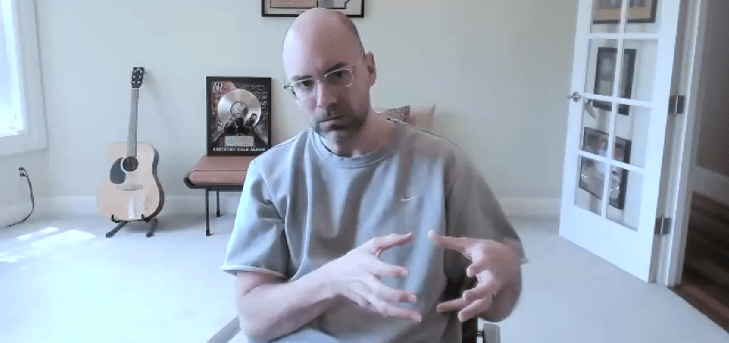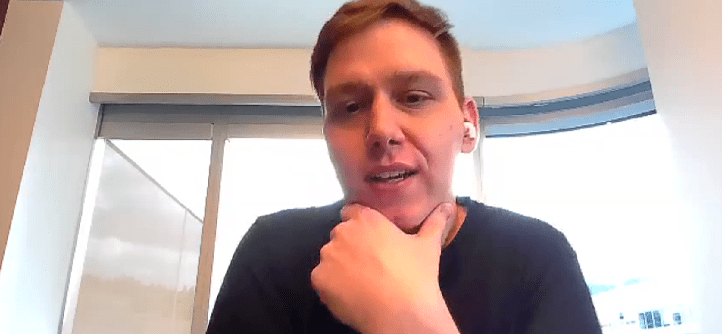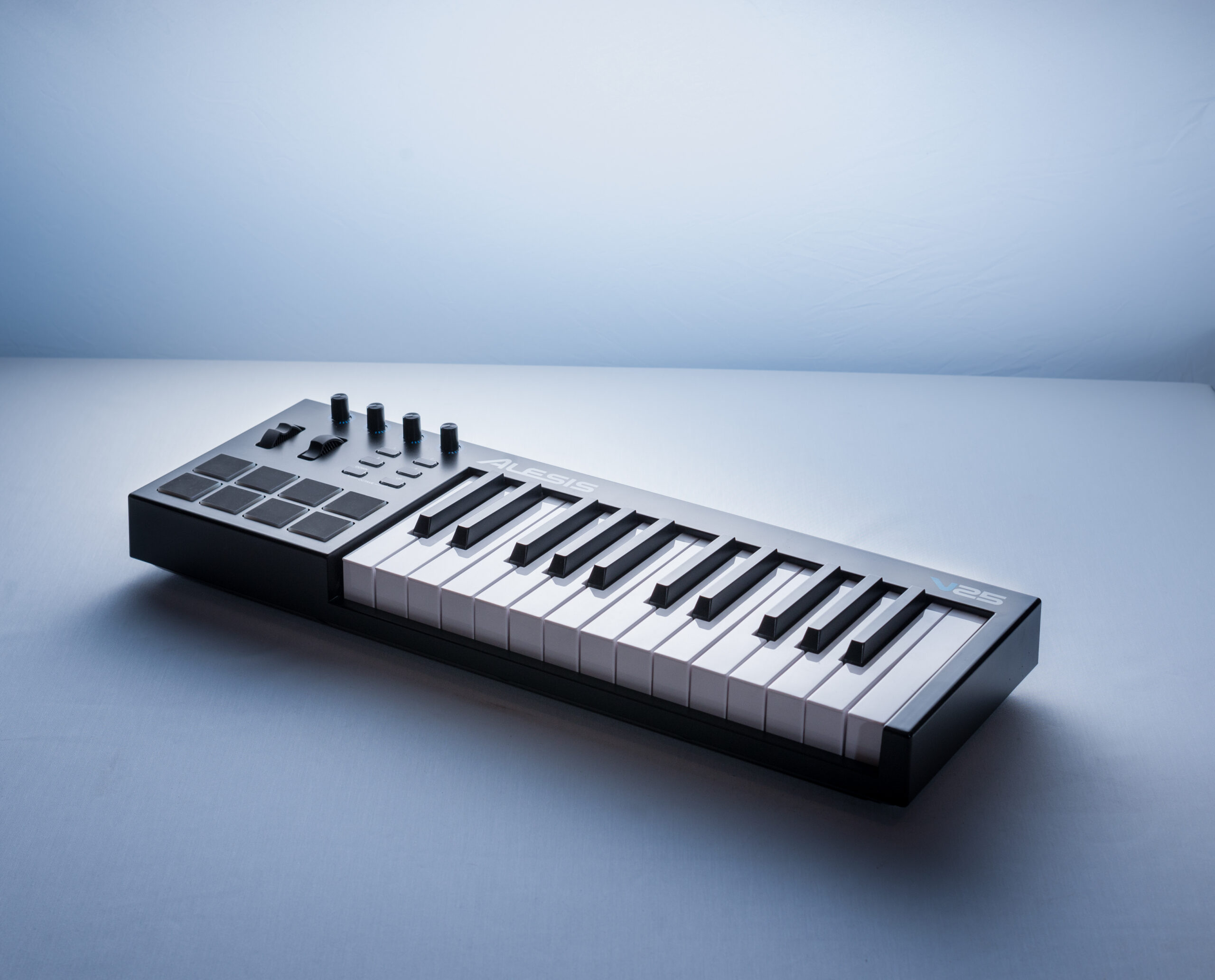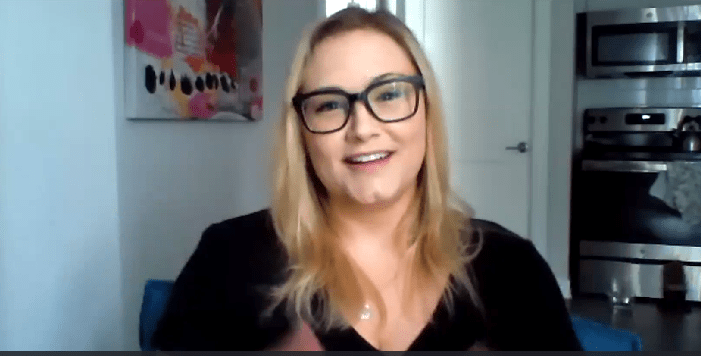
There was no bigger story in radio (or technology) this year than A.I. – its power, its potential, and its ability to be a game-changer. And of course, the ongoing debate of whether A.I. could benefit the business or would turn out to be the beginning of the end.
The “lightning rod” moment came in June when Alpha Media took a giant step toward integrating A.I. with day-to-day radio broadcasting, using the technology to simulate the voice behind the mic. On JacoBLOG we opened the door and gave you a good look inside the “A.I. sausage factory.”
Today’s “Best of” post is a reprise of that moment. Now that the year is all but over, what’s your take on where radio stands with A.I.? Where do we stand as an industry, how might A.I. change radio (or will it?), and how does the role of the air personality change (or does it?).
Hopefully, this post will give you something to chew on while you watch those chestnuts roasting on your open fire. Cheers! – FJ
June 2023
As we’re nearing “halftime” in 2023, an inventory of the first six months of the year would reveal A.I. and related technology has been THE radio story so far. And for good reason. It has dominated industry conversations, while stoking both enthusiasm and fear at the same time. (Chances are, it will dominate all news stories for 2023.)
There are so many unknowns about A.I., and that’s a big reason why it has been difficult to predict how it will be used today, tomorrow, and in upcoming years. Even the inventors of ChatGPT – AI Online – are concerned about its ultimate applications and effect on world societies.
Last week, the talk of the industry was Alpha Portland’s Live 95.5, the first station to use this technology on a regular basis in a rated, prime daypart. Under the guidance of Phil Becker, Alpha Media’s EVP Content, voicetracker Ashley Elzinga (Ashley Z) has moved over to let “AI Ashley” take over her midday show. Under the station’s PD, Dylan Salisbury, Ashley Z’s virtual persona has come alive, stirring a flurry of reactions, many of them negative, especially those from radio industry veterans.
But what about the audience? As you’ll learn, Live 95.5 is being completely transparent about the voice behind the mic. Do listeners understand the technology? Are they aware they’re listening to a synthetic voice? And do they care?
Phil Becker, jumped on Futuri’s RadioGPT technology, hoping to learn about it. Now he’s pioneering it for radio broadcasters. A.I. is the talk of radio, but like many new technologies, it is often misunderstood. There’s more going on here than “robot DJs” and job losses. And he, Dylan, and Ashley were kind enough to give us an exclusive look at what they’re doing – and why.
Of course, I’m interested in your feedback. But I also hope you’ll give this post your attention and thought. Then let’s have a conversation about something that’s going to become a part of the media world – and beyond – for years to come. Like it or not. – FJ
Fred Jacobs: Phil, the moment Futuri said, “Hey, we’re going to do this,” Phil Becker and Alpha said, “We’re in.” So talk about the value of being first and and why you jumped on this right out of the box. What what were you thinking?
Phil Becker: My mindset is completely different than a lot of people in the industry. I don’t look at AI as artificial intelligence. I see the “A” in AI as “additional intelligence.” And if you put it through that lens and you say, I’m going to use this to increase the content and increase the intelligence, I think you’re in a better place.

So instead of sitting in that pocket of fear that I think a lot of people are in – and let’s call it what it is – it’s a fear that people think they’re going to lose their job, that this is the beginning of the end.
Here’s what I think Ashley Z, Dylan, and I am thinking: how do I use this to plus up what we’re doing?
The real story is I got a call from Daniel Anstandig, and he said, “I want to do this. And I don’t know that most people will be willing to do this, but you might.”
I shared with our team that we would be doing this with or without Futuri. So let’s try to do it together. So the mentality that we have is it’s additional not artificial.
Fred: Phil, this is not the first time you have pioneered technology. When we started developing apps at jacapps back in 2008, you were one of our first clients in Ft. Wayne. You were early on that trend, and you were doing stuff with apps that nobody was doing.
So, my question is a simple one. Is this about better radio? Is this about more efficient radio? Is it a publicity stunt? What’s the main motivation or is it a combination of a lot of that stuff?
Dylan Salisbury: There’s the Futuri and Phil aspect. They came to us with the idea right at the right time. Ashley Z was going for a job in Traverse City, and she got it. It was a perfect storm because we really like Ashley and we didn’t want to lose her. But now we don’t get the quickness (for voicetracking) because she’s got a full-time job and responsibilities now.

So we started thinking AI might be perfect to integrate with Ashley Z. We can’t replace Ashley because she’s one of a kind. But it allows us to have a timeliness factor that we kind of lost when Ashley Z got her job in Traverse City.
If something were to happen with Taylor Swift, beforehand we would say, “Hey, Ashley, jump in and cut us a news break for Taylor.” Now she’s handling her regular duties, and we can go in ourselves and generate that content in a matter of seconds.
We have no intention of replacing Ashley Z. This is additional to Ashley Z, not in place of. And that’s where I think a lot of people are misunderstanding (the technology) because she’s real. Ashley Z is on the air today.
Fred: So let’s talk a little bit about some of the feedback you guys have gotten because not surprisingly, it’s probably mostly been about you’re taking away jobs. Can you talk about what you’re hearing and does it affect you?
Phil: The reason that we’re getting some of that feedback is because the industry doesn’t know what Dylan and Ashley and I know. They haven’t seen it. They haven’t played with it. They haven’t strategized it. And so we’ve got to give them some grace. Because to them on the outside looking in, it is, well, you know, it was good while it lasted.
I don’t think that it’s a coincidence that when the synthesizer came out, musicians tried to ban it. And yet what do we call Ashley Z’s voice when she is AI Ashley? We have a synthetic Ashley. When the technology moves faster than the business model, fear is the reaction.
The same thing happened with the drum machine where people said, “I’m never going to use a drum machine.” And now hit songs around the world are made by drum machines and new jobs are created from synth producers and from drum programmers and all of these things.
created from synth producers and from drum programmers and all of these things.
It’s not a job eliminator. It’s a job amplifier. And the reality is, and I have an unfair advantage compared to a lot of people that love to live in the comments. I see the business scope of the industry.
Payroll and salaries of programming were eliminated 20 years ago. This is not going to be the thing that saves us from a financial standpoint. It might actually be the thing that saves us from a content standpoint.
What do you think Paul McCartney’s going through when he says he’s going to use AI to help finish an unreleased Beatles record with an AI version of John Lennon, who’s a revered songwriter who was murdered? You know, that is where we got to stop being so precious. We have to understand that all businesses are going to be disrupted.
Ashley Z: I just thought, I like getting bloody. Bring it on. To me, it’s a matter of saying yes to people that I trust. I’m a talent, and I’m not here to be phased out.
And when I get a phone call from someone who I enjoy working with, who’s on a team that I want to stay a part of, and he has this serious tone and he’s asking me a genuine question: “Would you like to be a part of this?”

And I know that this is something that the people that I work for have been interested in for a long time and speak intelligently on, such as I’ve seen Phil do for a while before they came to me with the question. I already knew that there was a bit of a background there, so it wasn’t spur of the moment for them.
And then I had to make the decision. Do I want to be a part of this? Yes. Do I want to be a part of their team? Yes. Do I trust them? Yes. And if I’m going to say yes to anyone on this, is it now? And my answer was yes.
I just wanted to be a part of an industry that I love so much. Live and local radio is my thing. If we can make the listener experience better with what we’re doing, with their intention behind this, with all of our intention behind this, to me it’s a no brainer.
And then just learning as we go and being the trailblazers and pioneering a new way that was going to happen anyway. So if it gets to be you, I just feel like that’s really cool.
Fred: So, Ashley, you just mentioned the word “trust” several times. As talent, that’s got to be there, right?
Dylan: It’s huge.
Ashley Z: It’s huge. For the first time in my career, I really feel that way. I’ve learned what it feels like when you can’t trust someone that you thought that you could. And it’s just, I mean, every talent in this industry will joke about the fact that if you don’t know that feeling, you’re not really in radio. But if you know that feeling, you know that feeling.
talent in this industry will joke about the fact that if you don’t know that feeling, you’re not really in radio. But if you know that feeling, you know that feeling.
I studied business with Harvard Business School online. That’s a recurring theme. I mean, trust is huge. And leadership. If you can’t have constituents who trust you, you’re not leading them anywhere.
Fred: So Dylan, are you writing a show for AI Ashley. Is it you?
Dylan: Yes, it’s me in its entirety.
Fred: So how do you do that? I mean, how do you write in her voice? I mean, how does that work?
Phil: Fred, this is the fun part.
Dylan: This is what’s going to separate one person from another is trying to be able to write from a point of view that isn’t mine.
Fred : Will it get easier?
Dylan: Yeah, I think it’s, I think, a learning process and a learning curve for me and Ashley. It’s almost going to have to be a “reverse aircheck.”
 Now, she is going to have to start airchecking me. She might say to me, “I like how you wrote that, but I would never say it that way.” Or I would never use this word, so we have to take that out of the equation.”
Now, she is going to have to start airchecking me. She might say to me, “I like how you wrote that, but I would never say it that way.” Or I would never use this word, so we have to take that out of the equation.”
Fred: Have you guys done any on-air disclosure of this? Does the audience know what’s going on?
Dylan: Yes, our audience and our listeners are everything to us. We are nothing without them, so we never, ever want to deceive them. So every time her virtual twin is on the air, she will always state, “Hey, it’s AI Ashley.” We will never air a break from Ashley that doesn’t identify her AI self.
Phil: Ashley’s going to do an “Ask Me Anything” where we’re going to take all of the questions, all of the fears, all of the doubts, all of the negativity (from the audience) and she’s going to address it.
If you’re telling the truth about something. Then all of that goes away, right? So she’s going to answer the questions and she’s going to answer all of these things.
I also think Ashley Z aside, this is going to give radio stations the opportunity to create additional content they formerly couldn’t. And we can evolve the Ashley character.
If Ashley Z is Eminem, AI Ashley can be Slim Shady. If Ashley is the angel, AI Ashley can be the devil and Ashley can be the angel. We can push her to do different content things than we ever could do before.
FYI, there was a Part 2 to this post where Phil, Dylan, and Ashley discussed where AI stacks up on the list of radio broadcasting’s key moments, other impacts AI might have on radio, and the different ways in which AI Ashley can sound. You can access it here. – FJ
- A 2020 Lesson?It Could All Be Gone In A Flash - April 24, 2025
- How AI Can Give Radio Personalities More…PERSONALITY - April 23, 2025
- Can Radio Afford To Miss The Short Videos Boat? - April 22, 2025





AI Ashley will never be Ashley as long as someone else is writing what it says.
Shouldn’t they at least change the name to “Lifeless 95.5”?
Maybe one day a self-aware A.I. Ashley determines the M.D. is an idiot and needs to be replaced . . . Then the P.D. . . Then the O.M. . . Then the G.M . . . Think Terminator . . . . .
Then the listener.
A college professor of my acquaintance gave his standard history assignments to AI, he said at best they were C students. As for the Harvard B School, they are now saying customer service “Isn’t worth the investment.”
AI is a tool, like a handy adjustable wrench.
Hard to post anything today without causing outrage. And who needs more of that? So I’ll only say that a Television ownership signed up with an AI company for voiceover. This particular TV ownership Group wanted to know why they were still paying for real voices now that they had the AI voice service. The TV station had actually tested the AI service 20 times on 20 projects and all 20 times it stunk. This, despite the amazing demos in their Facebook ad and the client logos on their site. But, it all will certainly improve. It’s inevitable. On Youtube I am getting used to a couple of AI narrators. The rest are annoying as nails on a chalkboard. You can hear the annoying ones on any Youtube ad that goes like this: “This 17 year old has totally disrupted and put the medical industry out of business by making this $19 thing in their garage.” It is what it is.
Jim, likr so many other aspects of our 2020s lives, nothing is cut and dried, or easy to process. What is truth, what are the facts, and what truly matters to us? I think AI forces a lot of hands, not always for the good. The democraticization of tech means that anyone can afford the toys necessary to become a publisher, an owner, or even a broadcaster. That doesnt mean it’s good or that others will want to consume it. Like podcasting, anyone can do one. But only a handful can produce one that sustainable and substantial numbers of people want to listen to. But hasn’t it always been that way? HNY to you and Dawn.